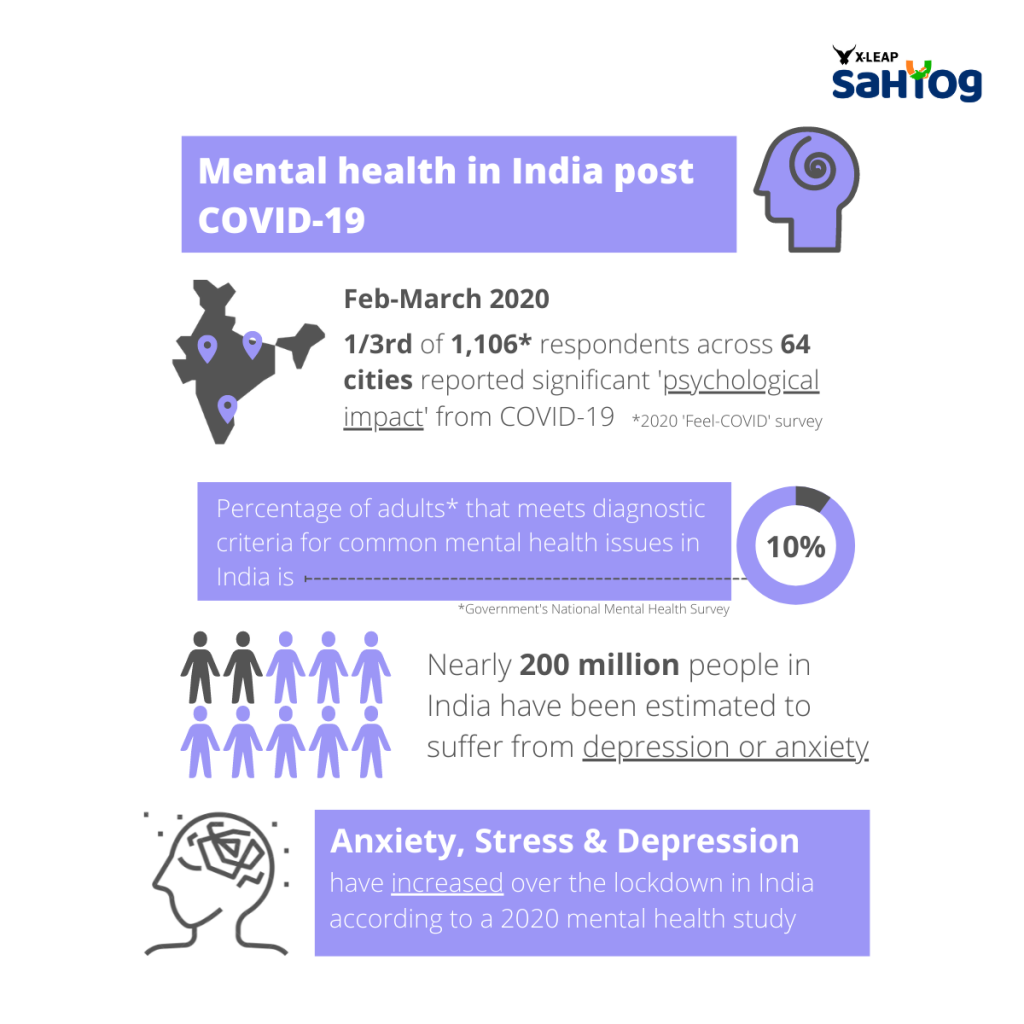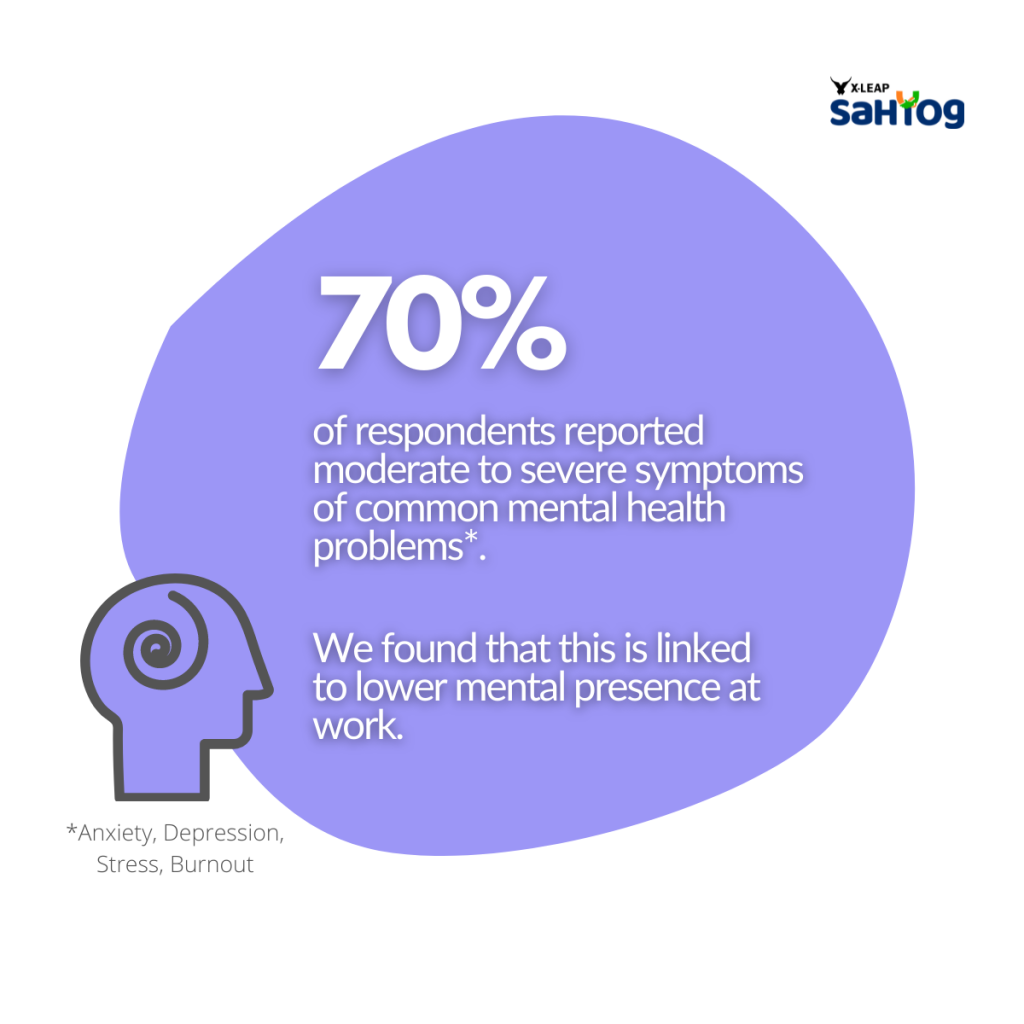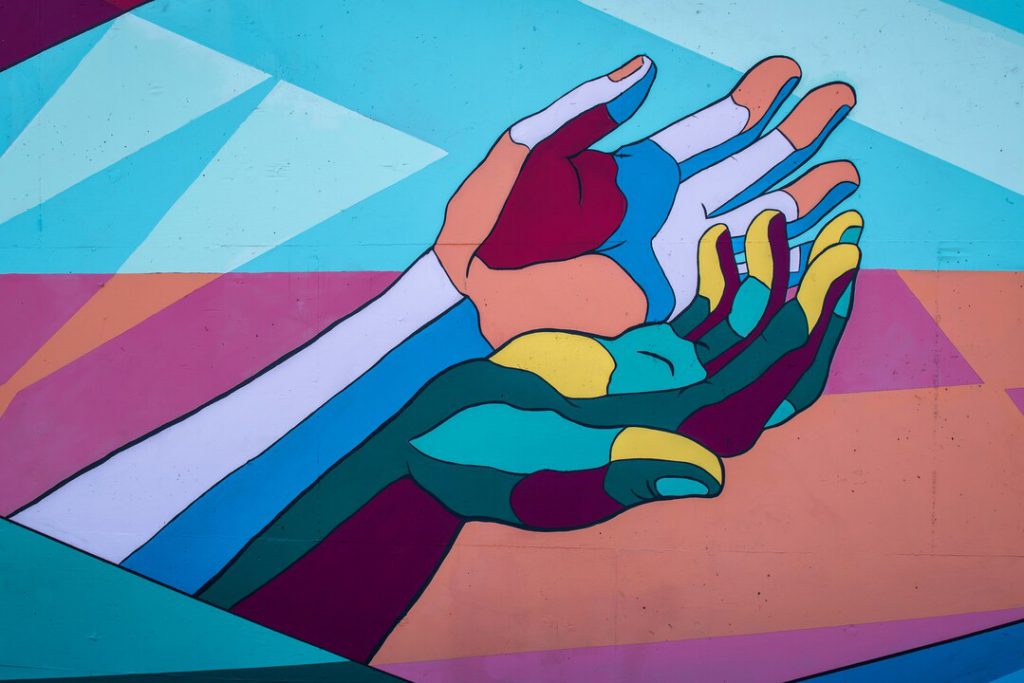Note: This 3-part series explores our Mental Wellbeing Initiative, one of four voluntary services offered as part of the broader Sahyog campaign.
TL;DR: X-Leap has started an initiative called Sahyog to support government and social sector organizations during the pandemic, through strategic, operational, and mental health interventions.
As part of this initiative, it recently designed and co-facilitated a wellness program for officers from a government department, including doctors in a North Indian state. The stories were heartbreaking. The numbers corroborate that.
Design principles were used to help individuals overcome the barriers and participate, such as designing an innovative ‘Pulse Check’ and other interventions. It was heartening to be able to move the needle away from zero. There are miles to go.
The second wave of the pandemic which struck India has been a tragedy of epic proportions. Every tragedy is, however, an opportunity to observe the best of humanity, sometimes where we least expect them. In India, across the nation, we saw hundreds of people – common folk, organisations, NGOs, celebrities do whatever they could to scramble relief. Some were organising fund raisers to enable massive oxygen tanks to be airlifted to India while scores of others were organising free food services to families caring for COVID patients.
However, one section of society was largely ignored in mainstream conversations – it was our government officers and staff. They administer the country (which is a complex job in India in the best of times). In times like we experienced, the stress can hardly be imagined. District and block level officials managing the on-ground challenges, public doctors and nurses bearing the bulk of the caseload, information dissemination, social security, logistics and multiple other aspects of statecraft were being managed while handling personal grief.
For those of you who don’t know about us, at X-Leap we focus on solving strategic human-centric problems for our clients using a unique blend of management sciences, behavioural science, data science, and human-centered design principles.
At X-Leap, many of us were directly affected. Thankfully, all of us and our immediate families made it through, and we stuck by each other. However, those tragic days of personal suffering combined with a flood of ‘bad news’ led us to wonder if we could support the government offices or departments by leveraging the skills we had. Thus was born Sahyog – a volunteering collaborative of some niche agencies as well as professionals.
While the peak of the second wave may be behind us (we surely hope so), its effects are not going away soon. While the livelihoods of millions of people have been adversely affected, many have experienced death and suffering very very close to them, combined with the effect of loneliness of the lockdowns. Mental health has become a critical concern. Several studies conducted during this time have also shown a rise in common mental health issues.

Government officers and staff were severely affected as we understood from several anecdotal conversations. Doctors in government facilities experienced a tsunami of patients passing away, while others had to come to terms with their colleagues succumbing to the virus as well. This was having a negative impact on their willingness to work, and their problem-solving abilities.

As we spread the news of our offering to government offices across India, we were not surprised that the most frequent appeals we received were for a mental wellbeing service. Realizing the widespread nature of this very complex issue, the mental wellbeing program – ‘Sahyog: Wellbeing’, was co-designed by the X-Leap team along with Shruti Pakrasi (an experienced organizational psychologist and therapist). The objective was to design a solution that would not just look good on paper, but actually make a positive impact on people, while working within the constraints.




